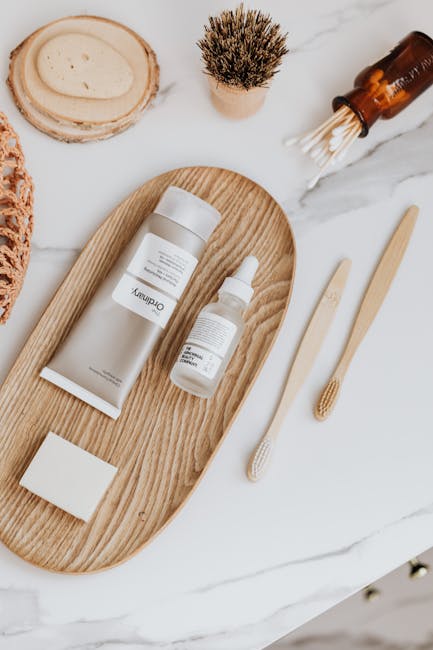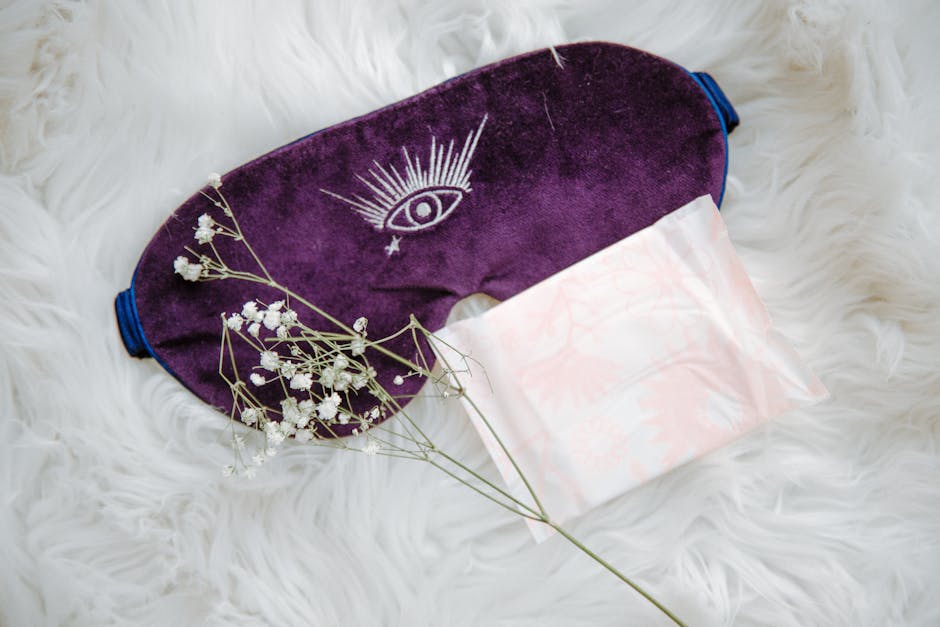Are you tired of tossing and turning at night, struggling to get a good night’s sleep? You’re not alone. Many people struggle with poor sleep hygiene, which can lead to a host of health issues. But don’t worry, there are ways to improve your sleep hygiene and get the restful sleep you deserve. Keep reading to discover some practical tips that can help you transform your sleep routine and wake up feeling refreshed and rejuvenated.
Key Takeaways
- Establishing a consistent sleep schedule is crucial for good sleep hygiene.
- A relaxing bedtime routine can help prepare your body for sleep.
- Your sleep environment plays a significant role in the quality of your sleep.
- Diet and exercise can impact your sleep patterns.
- Managing stress and worry can lead to better sleep.
Establishing a Consistent Sleep Schedule
Go to bed and wake up at the same time every day, including weekends
Consistency is key when it comes to sleep. Going to bed and waking up at the same time every day helps regulate your body’s internal clock, also known as your circadian rhythm. This can help you fall asleep faster and wake up feeling more refreshed.
Adjust your schedule gradually if needed
If you’re trying to adjust your sleep schedule, do it gradually. Making drastic changes can throw off your internal clock and make it harder to fall asleep. Try adjusting your bedtime or wake-up time by 15 minutes each day until you reach your desired schedule.

Creating a Relaxing Bedtime Routine
Engage in calming activities before bed
Reading
Reading a book can be a great way to wind down before bed. It can help distract your mind from the stresses of the day and prepare your body for sleep. Just make sure to choose a book that’s relaxing and not too stimulating.
Taking a warm bath
A warm bath can also help prepare your body for sleep. The rise and fall in body temperature can promote drowsiness and help you fall asleep faster.
Avoid stimulating activities before sleep
Using electronic devices
Electronic devices emit blue light, which can interfere with your body’s production of melatonin, a hormone that regulates sleep. Try to avoid using electronic devices for at least an hour before bed to improve your sleep hygiene.
Intense exercise
While regular exercise can promote better sleep, intense exercise too close to bedtime can actually make it harder to fall asleep. Try to finish exercising at least three hours before you plan to go to bed.

Optimizing Your Sleep Environment
Make your bedroom conducive to sleep
Ensure your mattress and pillows are supportive
Your mattress and pillows play a crucial role in your sleep quality. They should be comfortable and supportive, helping to maintain proper spinal alignment. If your mattress or pillows are old or uncomfortable, it might be time for an upgrade.
Keep the room cool, dark, and quiet
A cool, dark, and quiet environment can promote better sleep. Consider using earplugs or a sleep mask if you’re sensitive to noise or light.
Use your bed only for sleep and sex
Your bed should be associated with sleep and relaxation, not work or other stimulating activities. This can help signal to your body that it’s time to wind down and go to sleep.
Enhance your sleep setting
Use blackout curtains
Blackout curtains can help block out any outside light that might interfere with your sleep.
Consider white noise machines
White noise machines can help drown out any disruptive noises that might prevent you from falling asleep or wake you up during the night.

Diet and Exercise for Better Sleep
Limit intake of caffeine and alcohol
Caffeine and alcohol can interfere with your sleep. Try to avoid consuming these substances, especially close to bedtime.
Avoid large meals before bedtime
Eating a large meal before bed can cause discomfort and disrupt your sleep. Try to finish eating at least two to three hours before you plan to go to bed.
Include physical activity in your daily routine
Exercise regularly
Regular exercise can help regulate your sleep patterns and improve your sleep quality. Just make sure not to exercise too close to bedtime, as this can interfere with your sleep.
Avoid vigorous exercise close to bedtime
While regular exercise is beneficial for sleep, vigorous exercise too close to bedtime can interfere with your ability to fall asleep. Try to finish exercising at least three hours before you plan to go to bed.

Managing Stress and Worry
Implement relaxation techniques
Meditation
Meditation can help calm your mind and prepare your body for sleep. Try incorporating a short meditation practice into your bedtime routine.
Deep breathing exercises
Deep breathing exercises can also help relax your body and mind, making it easier to fall asleep.
Writing in a journal
Writing in a journal can help you process your thoughts and worries before bed, making it easier to fall asleep. Try writing in a journal for a few minutes each night as part of your bedtime routine.
Manage worries effectively
Set aside time earlier in the day to address concerns
If you find yourself worrying in bed, try setting aside time earlier in the day to address your concerns. This can help prevent your worries from keeping you up at night.
Avoid bringing worries to bed
Try to keep your bed a worry-free zone. If you find yourself worrying in bed, get up and do something relaxing until you feel sleepy again.
Improving your sleep hygiene can have a significant impact on your overall health and well-being. By implementing these tips, you can improve your sleep quality and wake up feeling refreshed and rejuvenated each day. Remember, good sleep hygiene is a habit that takes time to develop, so be patient with yourself and celebrate small victories along the way.
For more information on the importance of good sleep hygiene, check out these articles on the importance of sleep for self-care, getting enough sleep, and how to create a healthy morning routine.
Sources:
– CDC – Sleep Hygiene Tips
– Healthline – Sleep Hygiene
– Mayo Clinic – Sleep tips: 6 steps to better sleep
Snooze Smarter: Your Ultimate Sleep Hygiene FAQ Guide
What is sleep hygiene and why is it important?
Sleep hygiene refers to the practices and habits that are conducive to sleeping well on a regular basis. It’s important because good sleep hygiene can enhance the quality of your sleep, making you feel more rested and energized during the day. It can also improve your overall health, mood, and productivity.
How does light affect my sleep?
Light plays a crucial role in regulating our sleep-wake cycle. Exposure to bright light (especially blue light from screens) in the evening can trick your brain into thinking it’s still daytime, reducing the production of melatonin, a hormone that promotes sleep. Dimming the lights and avoiding screens at least an hour before bed can help signal your brain that it’s time to sleep.
What is the ideal bedroom environment for good sleep?
The ideal bedroom environment for sleep is cool, dark, and quiet. A temperature around 65°F (18°C) is often recommended. Using blackout curtains and white noise machines can also help create an environment more conducive to sleep.
How does diet affect sleep?
What you eat can significantly impact your sleep quality. Heavy or rich foods, fatty or fried meals, spicy dishes, citrus fruits, and carbonated drinks can trigger indigestion for some people, making it harder to sleep. It’s best to eat these foods well before bedtime. Additionally, caffeine and alcohol should be avoided in the hours leading up to sleep.
Is napping good or bad for sleep hygiene?
Napping can be a double-edged sword. While short naps (20-30 minutes) can be rejuvenating, longer naps or napping late in the day can interfere with nighttime sleep. If you struggle with sleeping at night, it might be best to avoid napping altogether.
How does exercise impact sleep?
Regular physical activity can help you fall asleep faster and enjoy deeper sleep. However, exercising too close to bedtime may leave you too energized to fall asleep. Try to finish any vigorous exercise at least three hours before you plan to retire for the night.
What should I do if I can’t fall asleep?
If you can’t fall asleep after 20 minutes, get out of bed and do something relaxing in low light, like reading a book or listening to soft music. Avoid checking the time frequently or using your phone, as this can increase anxiety and make it harder to fall asleep.
How important is a pre-sleep routine?
A pre-sleep routine signals to your body that it’s time to wind down and prepare for sleep. This could include activities like reading, taking a warm bath, or meditation. Consistency is key, so try to stick to the same routine every night.
Can stress affect my sleep?
Yes, stress is a common cause of sleep problems, including difficulty falling asleep and sleep disturbances. Developing strategies for managing stress, such as exercise, mindfulness, or talking to a professional, can improve your sleep quality.
How much sleep do I really need?
The amount of sleep needed varies by age and individual, but most adults require 7-9 hours per night. Listening to your body and adjusting your schedule to ensure you’re getting enough rest is crucial for maintaining good sleep hygiene.



